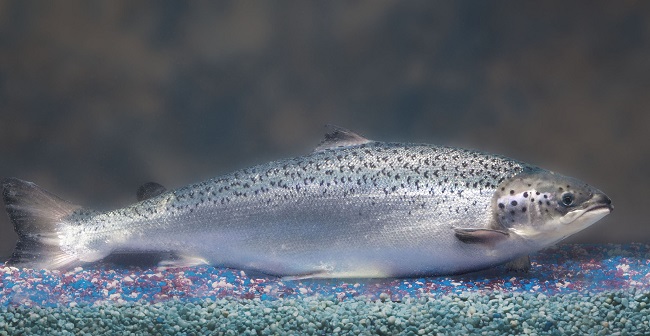
Industry update
News
Management
Sustainability
Technology
AquaBounty plans its next RAS project
May 12, 2020 By Nestor Arellano
 AquAdvantage Salmon
AquAdvantage SalmonAquaBounty Technologies, the aquaculture company known for its development of genetically modified salmon, is poised for another land-based farm.
The company has over 300 metric tons of fish in the water between its two farms located in Indiana, in the U.S., and Rollo Bay in Prince Edward Island, Canada. However, in its first quarter report this week, AquaBounty’s top executive made it known that there’s another project on the way.
“As we prepare for the future, we continue to work through the process of formalizing offtake agreements with processors and customers,” said Sylvia Wulf, chief executive officer of AquaBounty. “We’re also taking steps to plan the next large-scale production farm, including identifying an ideal site location to maximize logistics and best serve our customers, selecting a design and construction firm, and choosing a RAS-technology provider.”
A press release from the company also indicated that AquaBounty’s harvest schedules remain on-track.
The first harvest of conventional Atlantic salmon is scheduled to begin in June 2020, and the first harvest of the company’s AquAdvantage salmon is scheduled to begin in the fourth quarter of 2020.
The company’s net loss in the first quarter of 2020 was to $3.1 million, or $0.11 per share, compared to a net loss of $2.8 million, or $0.18 per share, in the same period of the prior year.
Cash and cash equivalents were $14.7 million as of March 31, 2020, compared with $2.8 million as of December 31, 2019. The increase in cash and cash equivalents was primarily due to the completion of a public offering in February 2020, whereby the company raised gross proceeds of $15.5 million.
Wulf also sounded optimistic despite the challenges posed by the COVID-19 pandemic.
“A challenge like this pandemic highlights the need for technology and supply chain alternatives like ours, which address a safe, sustainable, and secure food supply. Our operational experience and expertise have helped us navigate through this unique environment and effectively execute against our strategy,” she said. “Looking forward, we plan to increase production volumes in subsequent months.”
Print this page